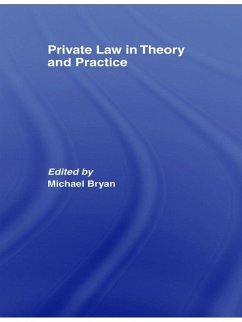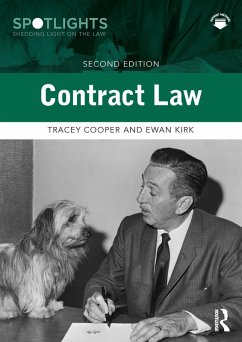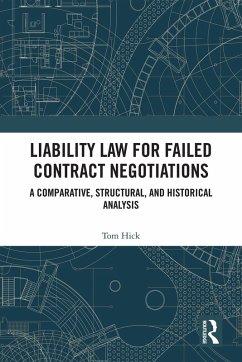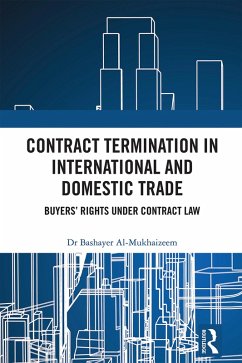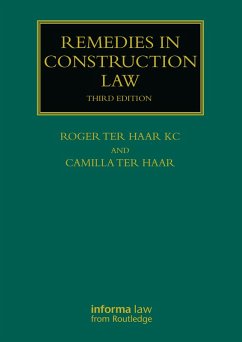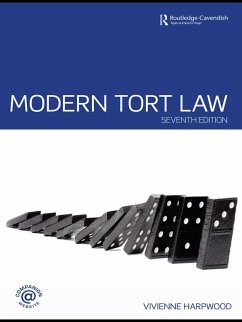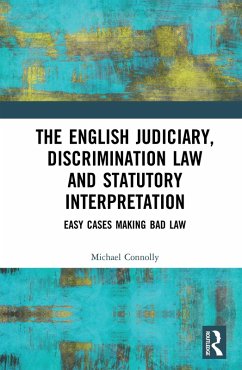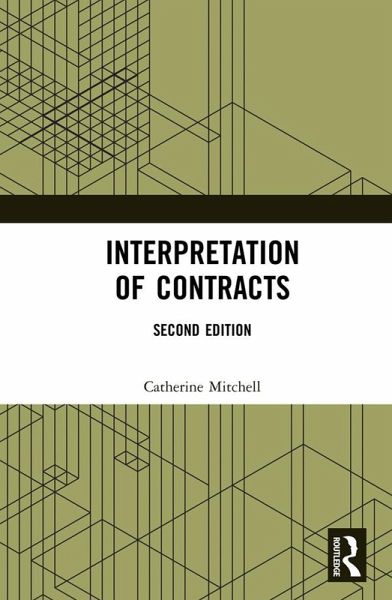
Interpretation of Contracts (eBook, PDF)
Versandkostenfrei!
Sofort per Download lieferbar
41,95 €
inkl. MwSt.
Weitere Ausgaben:

PAYBACK Punkte
21 °P sammeln!
This book is a second edition of Interpretation of Contracts (2007).The original work examined various issues surrounding the question of how contracts should be interpreted by courts, in particular focusing on the law of contract interpretation following Lord Hoffmann's exposition of the principles of contextual interpretation in Investors Compensation Scheme Ltd v West Bromwich Building Society [1998] 1 WLR 896. As with the original, this new edition provides an overview of the subject, concentrating on elements of controversy and disagreement, rather than a detailed analysis of all the cont...
This book is a second edition of Interpretation of Contracts (2007).
The original work examined various issues surrounding the question of how contracts should be interpreted by courts, in particular focusing on the law of contract interpretation following Lord Hoffmann's exposition of the principles of contextual interpretation in Investors Compensation Scheme Ltd v West Bromwich Building Society [1998] 1 WLR 896. As with the original, this new edition provides an overview of the subject, concentrating on elements of controversy and disagreement, rather than a detailed analysis of all the contract law rules and doctrines that might be regarded as interpretative in one sense or another. The book will be concerned with interpretation of contracts generally (following the rule that there are not different rules of interpretation for different kinds of contracts), but with reference to commercial contracts in particular, since this is the area in which the contextual interpretative approach was developed, and where it has most relevance.
The overall aim of the second edition remains the same as the first - to produce an accessible and readable guide to contract interpretation for law students, scholars and practitioners.
The original work examined various issues surrounding the question of how contracts should be interpreted by courts, in particular focusing on the law of contract interpretation following Lord Hoffmann's exposition of the principles of contextual interpretation in Investors Compensation Scheme Ltd v West Bromwich Building Society [1998] 1 WLR 896. As with the original, this new edition provides an overview of the subject, concentrating on elements of controversy and disagreement, rather than a detailed analysis of all the contract law rules and doctrines that might be regarded as interpretative in one sense or another. The book will be concerned with interpretation of contracts generally (following the rule that there are not different rules of interpretation for different kinds of contracts), but with reference to commercial contracts in particular, since this is the area in which the contextual interpretative approach was developed, and where it has most relevance.
The overall aim of the second edition remains the same as the first - to produce an accessible and readable guide to contract interpretation for law students, scholars and practitioners.
Dieser Download kann aus rechtlichen Gründen nur mit Rechnungsadresse in A, B, BG, CY, CZ, D, DK, EW, E, FIN, F, GR, HR, H, IRL, I, LT, L, LR, M, NL, PL, P, R, S, SLO, SK ausgeliefert werden.





